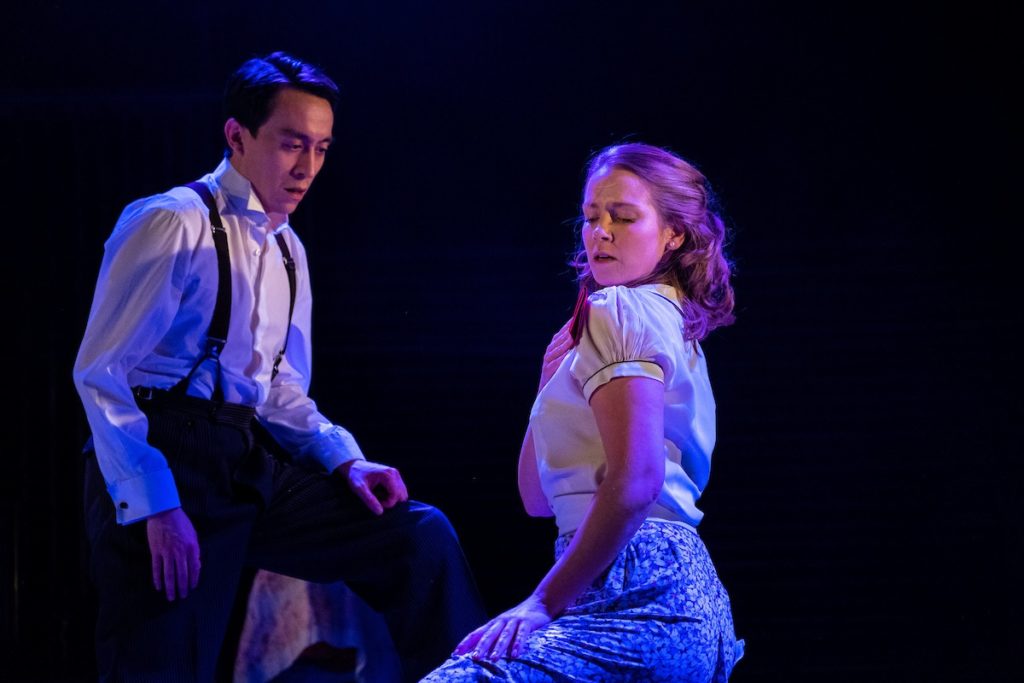
NEW Earth Theatre’s director and cast are in the York Theatre Royal Studio, having arrived on Tuesday for rehearsals for their touring revival of Amy Ng’s timely and politically charged take on Miss Julie.
Come Tuesday, Sophie Robinson, Jennifer Leong and Leo Wan will switch to the main house for the opening night of Dadiow Lin’s production, first staged with co-producers Storyhouse in Chester last year.
Out goes August Strindberg’s original 1888 setting for his full-length once-act drama Froken Julie, once banned in his native Sweden (of all places!) for its strong language and sexual imagery and for being too radical in its account of a psycho-sexual pas de deux between a count’s unstable daughter, Julie, and his ambitious valet, John.
In comes British-Hong Kong playwright Amy Ng’s new setting of the Chinese New Year in 1940s’ Hong Kong, when Julie (Robinson), daughter of the island’s British governor, crashes the servants’ party downstairs. What starts as a game descends into a fight for survival as sex, power, money and race collide on a hot night in the Pearl River Delta.
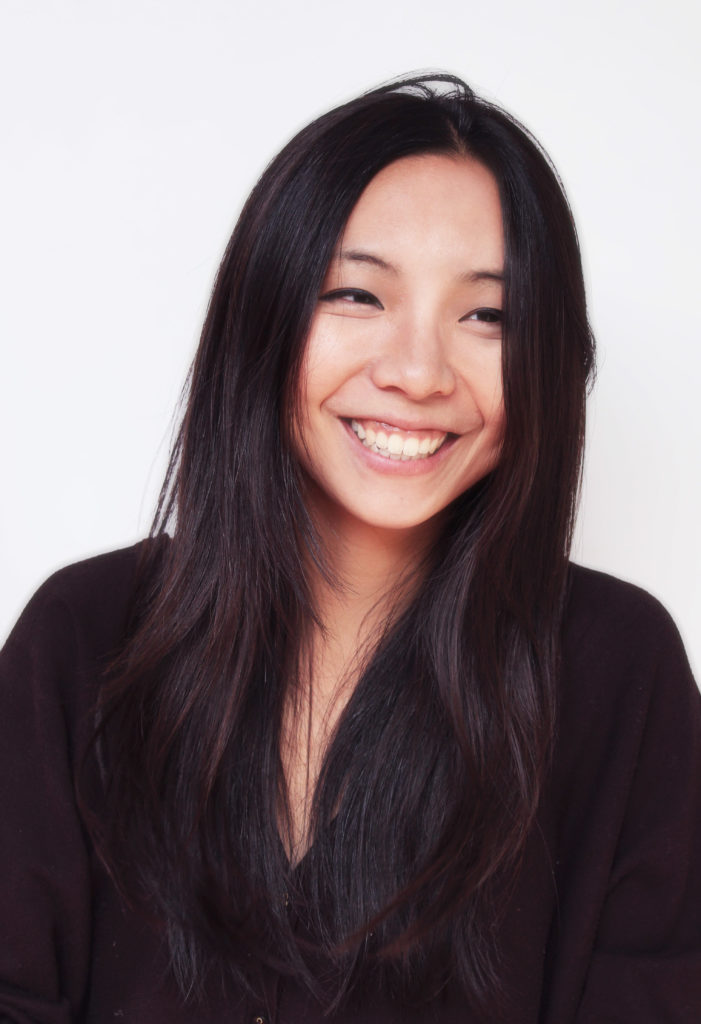
“I’m not a fan of the original version,” says Dadiow of a Strindberg play now viewed commonly as being misogynist. “The reason I’m loving doing this play is because of Amy’s adaptation. What we get from Strindberg, if there is any message, is that every drama comes down to people and relationships, and he does a great job of building up the pressure over the night, but there’s something in his original work that I don’t appreciate. Amy has given it more life, a more current feeling, that resonates with people.”
Amy Ng is far from the first writer to re-visit Miss Julie’s depiction of gender and class. In 1995, English playwright Patrick Marber’s After Miss Julie relocated Strindberg’s naturalist tragedy to an English country house in July 1945, on the night of the Labour Party’s post-war landslide General Election triumph.
In 2012, in South African director and playwright Jael Farber’s Afrikaans’ version, Mies Julie, it became an apartheid story in a remote, bleak farm in modern-day South Africa’s Karoo semi-desert.
“Clearly there is something in the nub of the story that’s attractive and interesting to other playwrights, who undertake big re-workings of the text: Marber, Farber and now Amy’s new setting in Hong Kong,” says Leo Wan, the Sheffield actor who plays valet John.
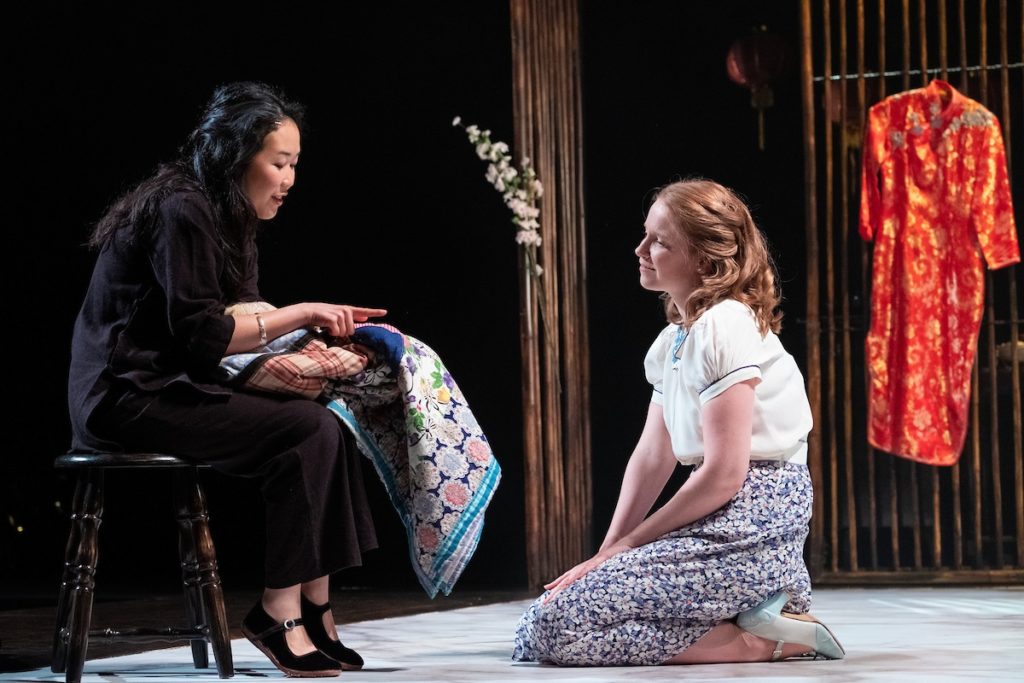
“Strindberg’s politics remain of his era, but we can make them current to talk about them now,” says Dadiow.
“So there’s something there, but writers feel they want to re-write it,” rejoins Leo.
Amy’s Hong Kong location and its topicality in light of the protests against Beijing-imposed laws strike a chord with Dadiow. “It definitely resonates with me and my own background. I grew up in Taiwan when we were experiencing similar events, so a story like this, to me, while I never feel ‘I want to tell you things’, it feels dear to me as a story I’m familiar with.
“It’s very emotional. You can look at Romeo & Juliet and feel moved, but this feels very close to me, because of Taiwan being colonised by Japan until 1945. I feel very emotionally connected to the history and culture.”
Jennifer Leong, who plays the role of Christine newly revised by Ng, has spent time aplenty in Hong Kong. “My early school years were there and I still have family there,” she says. “I lot of people watched it when we did a run of live-streams from Storyhouse earlier this year, especially with our production being set in Hong Kong.
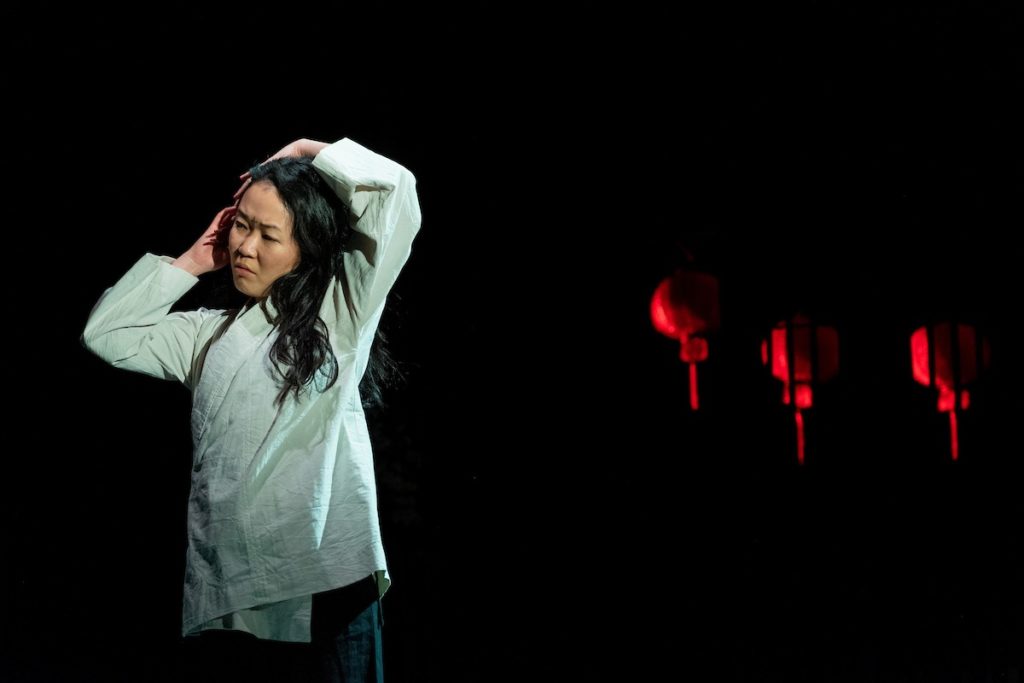
“They were very interested and said they really appreciated the specificity of the world that Amy has set the play in. We learn that the white, British people lived ‘on the peak’, exclusive to the British, and I have family with memories of that, so to hear about that context from them made it very powerful – and even if you didn’t know that context, it’s still a very powerful story about the lines that we draw socially. Now we add the race element to the class element of colonial times.”
Dadiow says: “Even though it’s set in the 1940s, you connect it with what’s happening in Hong Kong now, with the Chinese Communist take-over, where you’re seeing the rule of Communism really seeping in [with the national security law].”
Leo describes Strindberg’s Miss Julie as a chamber piece with a domestic setting, but one that expands in its impact through Ng’s 75-minute script. “It’s good to give a realistic context of what Hong Kong was like at that time, to show Britain when it still had an empire, with Hong Kong being the last great bastion of that empire,” he says.
“In this play, you see the repercussions of that, where if you colonise somewhere, and if you then stop that, you still have a moral responsibility to deal with what you have created, like the responsibility of now saying to Hong Kong citizens you can move to the UK [under a new visa scheme].
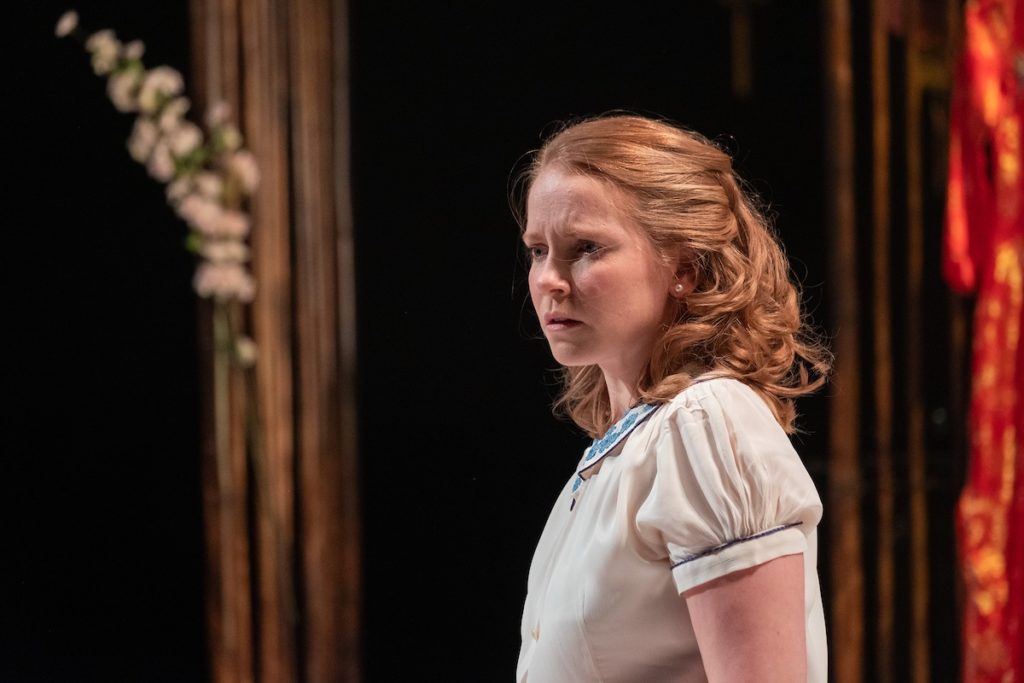
“Unfortunately, those who tend to be superpowers are singularly lacking in moral leadership…
…”But the one thing that British rule did well was to implement a legal system that Hong Kong is still proud of, and to an extent freedom of the press too,” interjects Jennifer.
Why book tickets for this Miss Julie, Dadiow? “Anyone who doesn’t like the original should see this version,” she urges. “This play is a psychological thriller with a real sense of danger in the room between mistress and servant, where you never know when they will cross the line, wondering what’s going on and will they cross it.”
That’s why the flyer still carries the content warning: Miss Julie contains some strong language, violence and scenes of a sexual nature.
Miss Julie, York Theatre Royal, June 22 to 26, 8pm and 3pm, Thursday and Saturday matinees. Box office: 01904 623568 or at yorktheatreroyal.co.uk.
Copyright of The Press, York
